200 somoni, 50 thousand soums and 175 tenge… Border officials of neighboring countries extorting money from people
Kun.uz correspondent visited the cities of Shymkent in Kazakhstan, Khojand in Tajikistan and Osh in Kyrgyzstan and witnessed officials of neighboring countries extorting money from citizens crossing the border.
During the visit, the journalist witnessed the difficulties faced by citizens at the border checkpoint “Jibek Joly-Gishtkuprik”, Uzbek-Tajik customs post “Oybek” and the border checkpoint “Dustlik-Dostyk”. There are cases of bribery from those who cross the border legally.
Tajikistan – 150-200 somoni
The largest extortion of money at border posts connecting the three countries is on the Tajik border. Uzbek citizens trying to cross into Tajikistan said that the crossing is allowed twice a day – before noon and in the afternoon. Also, they had to wait up to three hours in the neutral zone.
Those on the Tajik border conspire to extort 150-200 somoni (about 150,000-200,000 Uzbek soums) from each Uzbek citizen.
For this, a very simple, but nerve-wracking method that has a negative impact on the human psyche has been chosen. In other words, Uzbeks will have to wait for several hours in the neutral zone. As a result, they have no choice but to agree with the border guard at the gate and give him the amount he said. The agreed amount is given to the doctor working at the border post.
If you passed the doctor’s “examination” successfully, it means that you paid the established amount. Now neither the Tajik border guard nor the customs officer will pay much attention to you. In fact, the customs officer will not check your luggage.
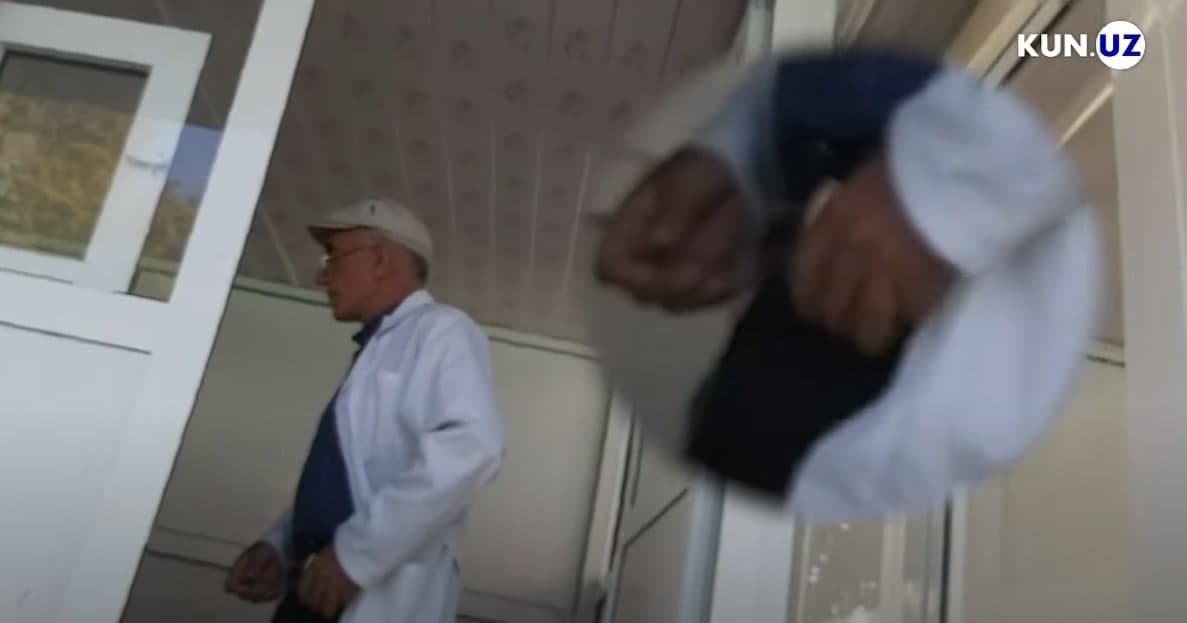
Kyrgyzstan – 50 thousand Uzbek soums
At the “Dostyk” checkpoint in Kyrgyzstan, the “permission price” to cross the border starts from 50,000 Uzbek soums. Here, the service of a doctor is also used to collect the illegal fee.
In our case, the PCR test certificate against the coronavirus obtained in the laboratory at the Tashkent International Airport named after Islam Karimov did not work. That is, this firm was not on the list of the Kyrgyz side.
It should be noted that if everything is okay with your PCR certificate, now the border guard himself will not let you cross without any reason. Next to the fence in the neutral zone, there is a mediator between you and the Kyrgyz border guard. He names the transfer “fee” amount openly. This is 50,000 soums for a citizen without luggage.
Kazakhstan – 175 tenge
The cheapest “fee” at the border checkpoints of the three countries is in Kazakhstan. A Kazakh customs officer at the “Jibek Joly” checkpoint simply demanded that the journalist dressed as a migrant put his money on the table and unjustifiably confiscated 175 tenges (4,400 soums).
At the time of writing this article, there were reports that Kyrgyz officials had been detained on the Uzbek-Kyrgyz border for soliciting bribes regularly from Uzbeks to cross the border.
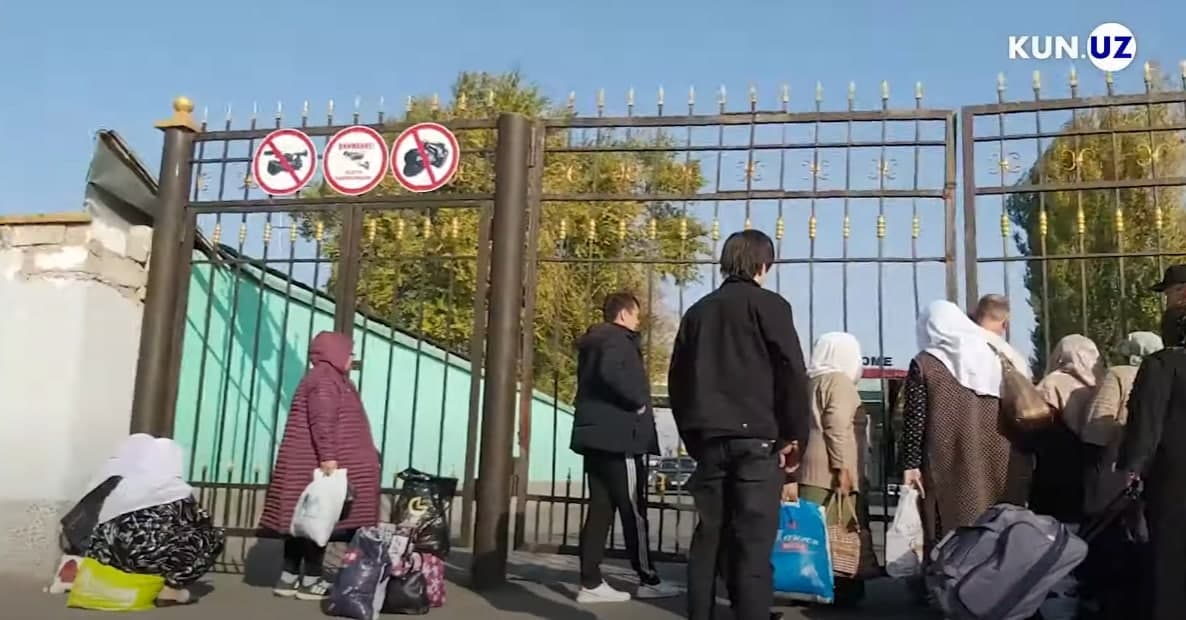
According to 24.kg, Kyrgyz law enforcement agencies have detained three dishonest officials who took bribes from Uzbek citizens (truckers) crossing the “Dostyk-Avtodorojniy” border checkpoint.
“On October 19, the head of the “Dostyk-Avtodorojniy” checkpoint, the head of the Border Service of the Osh region, as well as the first deputy director – the head of the General Staff of the Kyrgyz SCNS were detained. They are placed in temporary detention facilities in the Osh region,” the information center of the State Committee for National Security (SCNS) of Kyrgyzstan said.
In conclusion, 100,000 soums are illegally collected from everyone entering through the “Gishtkuprik” customs post, otherwise, the border guards would not have prevented even those who have a PCR-test certificate from entering, citing the need to pass an express test.
In our view, the mandatory practice of express coronavirus testing at the “Gishtkuprik” border checkpoint should be abolished, as this is nothing more than extorting money from people who have suffered financially during the pandemic.
The Government’s special commission to prevent the spread of coronavirus infection should put an end to this issue decisively. Because the “Gishtkuprik” laboratory still continues to operate in accordance with the minutes of the special commission meeting.
Related News
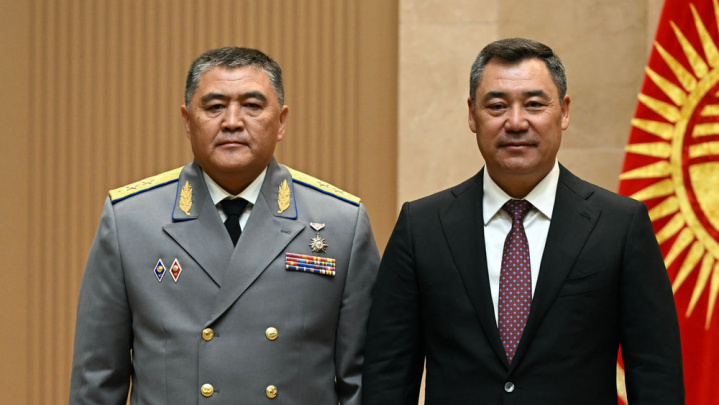
14:50 / 11.02.2026
Kyrgyzstan’s security chief Kamchybek Tashiev dismissed in surprise move as political landscape shifts
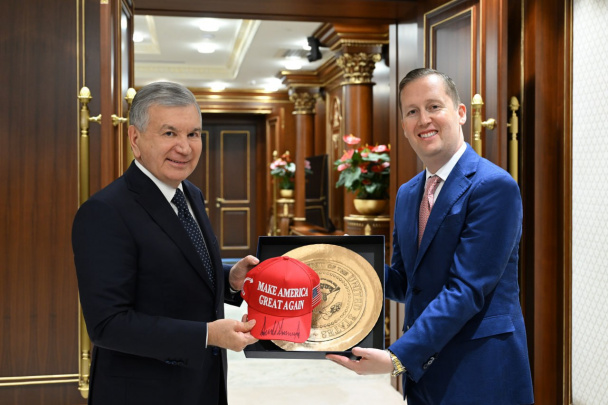
14:24 / 04.02.2026
U.S. Special Envoy Sergio Gor to visit Uzbekistan
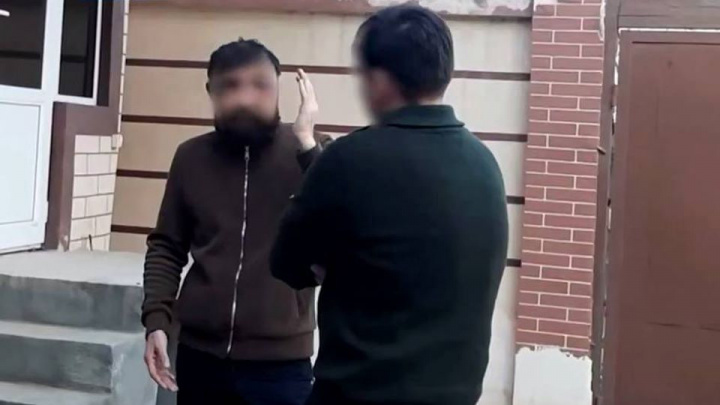
14:33 / 26.01.2026
Uzbek man jailed for holding Tajik citizen captive over $11,000 loan

14:13 / 22.01.2026




